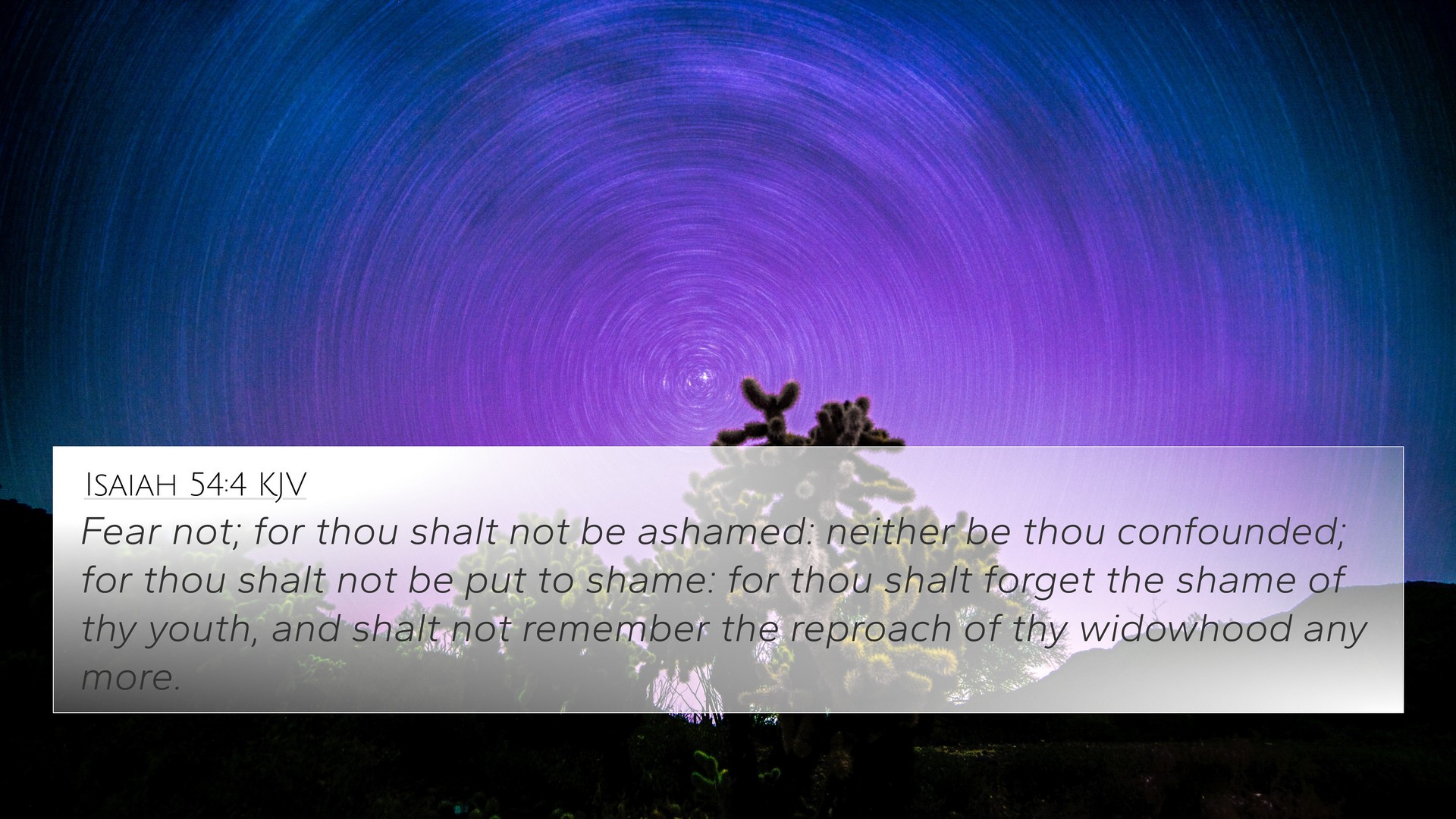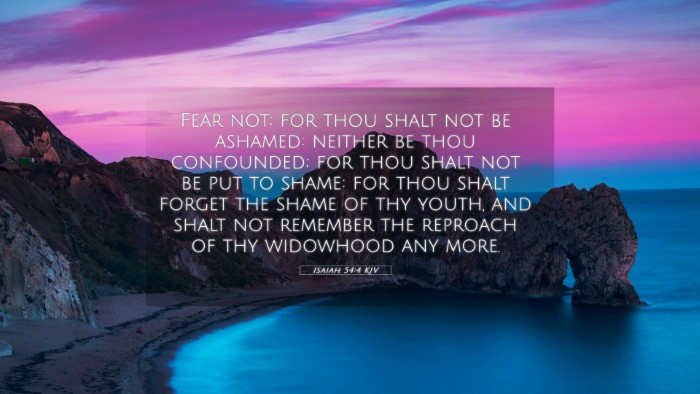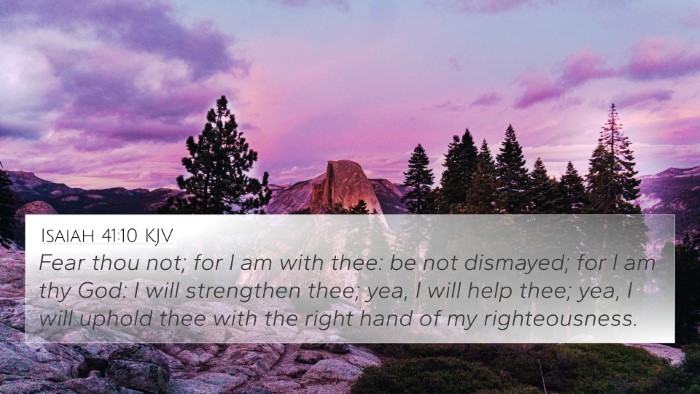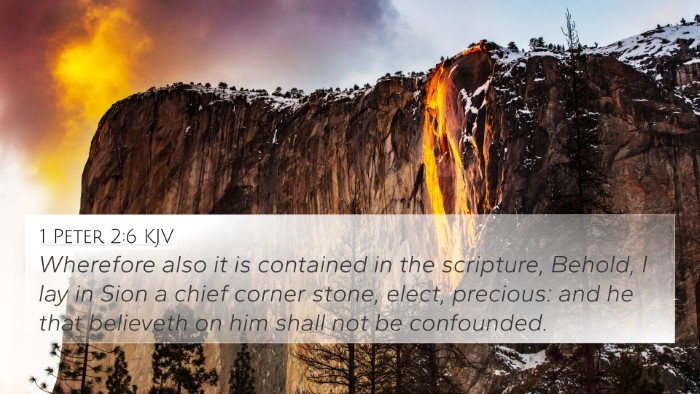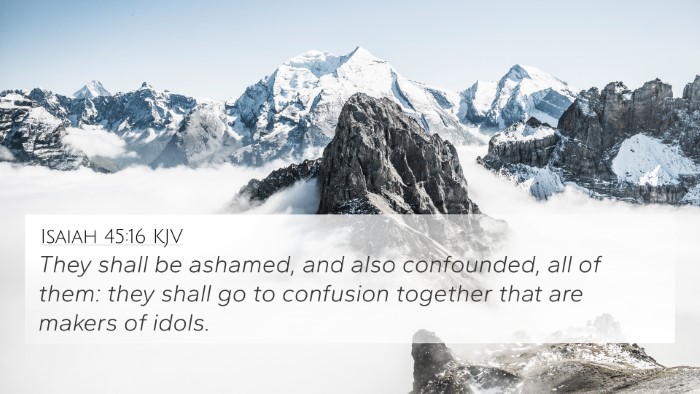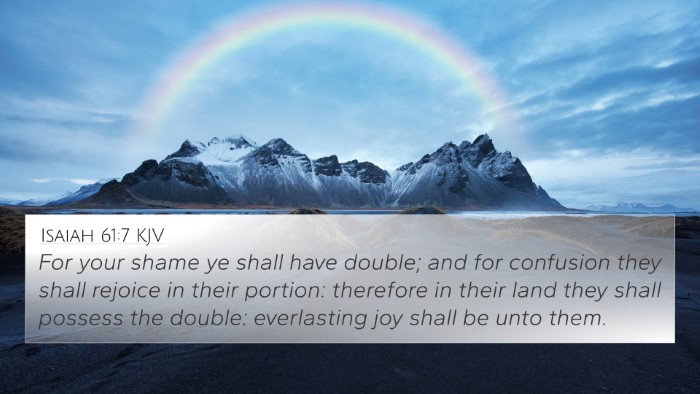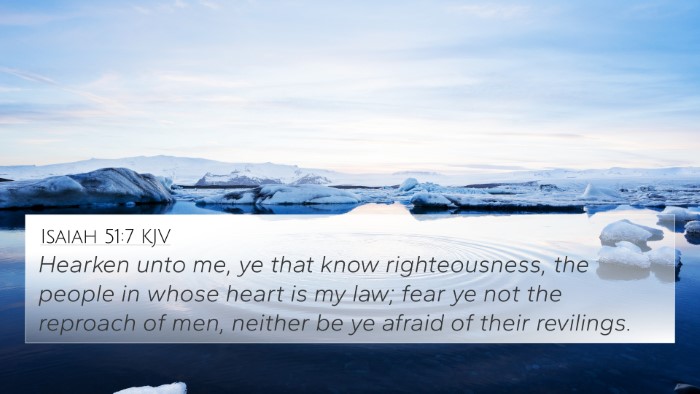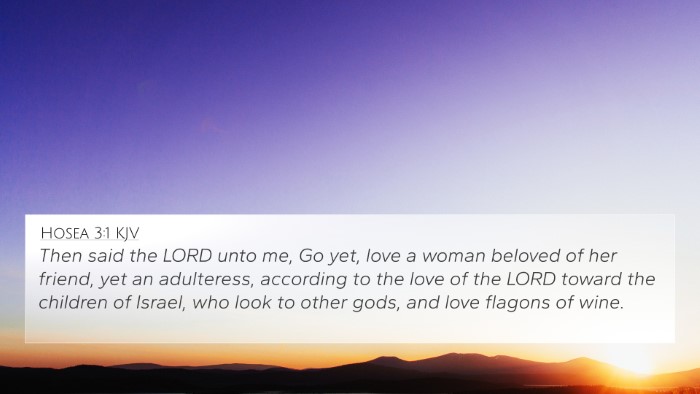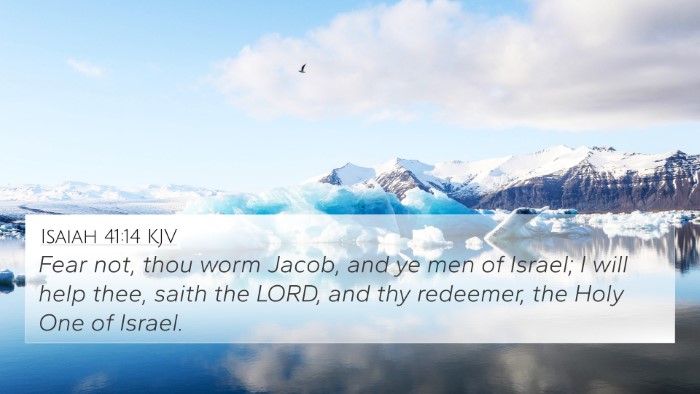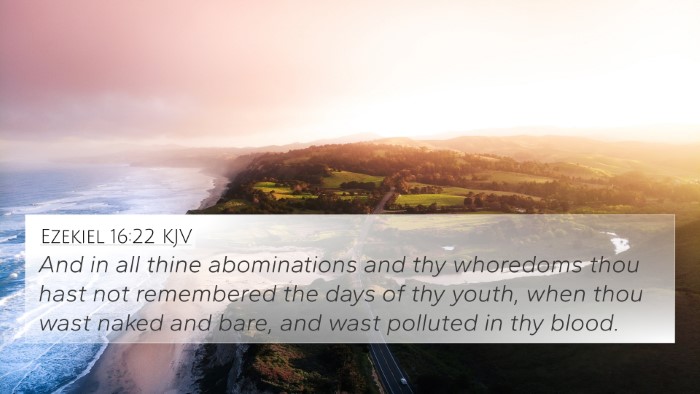Understanding Isaiah 54:4
Isaiah 54:4 states: "Fear not; for thou shalt not be ashamed: neither be thou confounded; for thou shalt not be put to shame: for thou shalt forget the shame of thy youth, and shalt not remember the reproach of thy widowhood any more." This verse offers profound comfort and reassurance, reflecting on themes of hope, redemption, and the promise of restoration.
Meaning and Insights
This verse is a powerful declaration of God’s care for His people, particularly in times of distress and shame. The Prophet Isaiah engages with the idea of fear and shame, suggesting a transformative promise from God.
Key Themes
- Fear and Shame: The message begins with a command to “fear not,” signifying that fear and shame are often intertwined. The followers of God are encouraged to rise above both.
- Promise of Restoration: The assurance that shame will be forgotten implies a future filled with hope and renewal.
- Divine Intervention: This verse reflects the nature of God as one who intervenes in human sorrow, offering healing and restoration.
Comparative Analysis with Commentaries
Combining insights from various public domain commentaries sheds light on the depth of this verse:
Matthew Henry's Commentary
Matthew Henry emphasizes the eradication of shame linked to past sufferings. He highlights that God’s grace enables the faithful to move beyond their sorrows, transforming their identity from victims to victors.
Adam Clarke's Commentary
Adam Clarke elaborates on the metaphor of widowhood, interpreting it as a sign of desolation. However, he posits that God's promise leads to a reversal of this desolation, inviting believers into a renewed state of joy and fulfillment.
Albert Barnes' Commentary
Albert Barnes notes the contrast between past disgrace and future glory. His interpretation reinforces the theological premise that God’s people will experience restoration and be honored after periods of hardship.
Cross-Referencing Related Verses
Understanding Isaiah 54:4 is enhanced by examining its connections to other Bible verses. Here are some key references:
- Isaiah 61:7: "For your shame, you shall have double; and for confusion, they shall rejoice in their portion..."
- 2 Corinthians 7:10: "For godly sorrow worketh repentance to salvation not to be repented of: but the sorrow of the world worketh death."
- Romans 10:11: "For the scripture saith, Whosoever believeth on him shall not be ashamed."
- Revelation 21:4: "And God shall wipe away all tears from their eyes; and there shall be no more death, neither sorrow, nor crying, neither shall there be any more pain..."
- Psalm 34:5: "They looked unto him, and were lightened: and their faces were not ashamed."
- Philippians 1:20: "According to my earnest expectation and my hope, that in nothing I shall be ashamed..."
- Zephaniah 3:19: "Behold, at that time I will undo all that afflict thee: and I will save her that halteth, and gather her that was driven out..."
Links Between Themes
Thematic connections appear throughout the Bible that not only echo the sentiments of Isaiah 54:4 but enhance its meaning:
- God's Assurance: Throughout scripture, God frequently reassures His people not to fear (e.g. Joshua 1:9, Isaiah 41:10).
- Transformation of Identity: The theme of identity transformation is prominent in 2 Corinthians 5:17 ("Therefore if any man be in Christ, he is a new creature...").
- Hope Amidst Trials: Passages like Romans 5:3-5 discuss how trials produce perseverance, character, and hope, parallel to the assurances found in Isaiah.
Conclusion
Isaiah 54:4 is a microcosm of God’s overarching narrative of love, redemption, and hope. It offers believers in despair a vision for the future, reminding them that their past does not dictate their future. Through comprehensive Bible cross-referencing, this verse can act as a thematic anchor in biblical studies, encouraging a deeper exploration of the links between Old and New Testament teachings.
